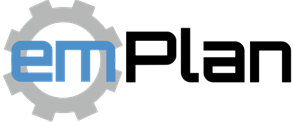The HVAC industry is constantly evolving, with new technologies and methods emerging to improve service quality, efficiency, and customer satisfaction. In this competitive landscape, HVAC engineers are faced with a crucial choice: stick with traditional methods or pursue certification programs, like becoming a Smart Engineer, to enhance their skills and stay ahead of the competition.
Certification, particularly through programs that focus on advanced tools and precision pricing like the Smart Engineer Program, offers HVAC professionals a significant advantage. This blog explores the key differences between certified Smart Engineers and those using traditional methods, and why certification can make all the difference in a successful HVAC career.
Traditional HVAC Methods: Where They Fall Short
For decades, HVAC engineers have relied on traditional methods for managing maintenance, repairs, and pricing. These methods often involve broad estimates, manual calculations, and a one-size-fits-all approach to service contracts. While traditional methods have served the industry in the past, they come with several limitations that can hold back both HVAC businesses and their clients.
Here are some of the most common shortcomings of traditional methods:
1. Inconsistent Pricing
In traditional HVAC practices, pricing is often based on broad estimates or flat rates that don’t account for the specific needs of each client. This can lead to inconsistencies, where some clients are undercharged, and others are overcharged. Inaccurate pricing hurts profitability and can damage client trust.
2. Limited Customization
Traditional methods typically offer a one-size-fits-all approach to service plans. Whether a client needs a simple seasonal tune-up or a comprehensive maintenance contract for a large commercial system, the pricing and service packages often look the same. This lack of customization fails to meet the unique needs of different clients, leading to dissatisfaction and lost business.
3. Manual Calculations
Many traditional HVAC methods rely on manual calculations to generate quotes and invoices. Not only is this time-consuming, but it also increases the risk of errors that can result in lost revenue or disputes with clients. Manual processes also make it difficult to scale operations efficiently as a business grows.
4. Limited Upselling Opportunities
In traditional HVAC pricing models, upselling additional services, such as preventive maintenance or system upgrades, is often overlooked. Without the ability to tailor pricing to specific client needs, engineers miss opportunities to provide additional value to clients and increase revenue.
5. Outdated Skillsets
HVAC technology is advancing rapidly, and engineers who stick with traditional methods may struggle to keep up. Without ongoing training or certification, engineers risk falling behind in terms of both technical skills and customer service, limiting their ability to compete in the market.
What is a Smart Engineer?
A Smart Engineer is an HVAC professional who has completed advanced training in using modern tools like the emPlan software, which focuses on precision pricing, tailored service plans, and client collaboration. Certified Smart Engineers are equipped with the skills needed to offer customized, data-driven pricing and to collaborate directly with clients to meet their specific needs.
Becoming a Smart Engineer means adopting new, more efficient methods for handling HVAC maintenance, repairs, and pricing—methods that go beyond the limitations of traditional approaches.
How Smart Engineers Outperform Traditional Methods
By earning the Smart Engineer certification, HVAC professionals gain access to a range of tools and strategies that help them outperform traditional methods in almost every aspect of their work. Let’s explore how certified Smart Engineers offer more value than traditional practices:
1. Precision Pricing
One of the key benefits of being a Smart Engineer is the ability to offer precision pricing. Unlike traditional methods that rely on estimates or flat rates, Smart Engineers use advanced tools like emPlan to create highly accurate, task-based pricing models. This ensures that clients are only charged for the exact services they need, and engineers are fairly compensated for their time and labor.
Precision pricing also helps build trust with clients by providing a clear, detailed breakdown of costs. Clients can see exactly what they’re paying for, which reduces disputes and improves overall satisfaction.
2. Tailored Service Plans
Smart Engineers have the tools and training to offer customized service plans for each client. Whether it’s adjusting the frequency of maintenance visits or tailoring services to the complexity of a client’s HVAC system, Smart Engineers can create personalized packages that fit the client’s budget and needs.
This level of customization is impossible with traditional methods, where all clients receive the same service package regardless of their unique requirements. By offering tailored solutions, Smart Engineers not only increase client satisfaction but also open up opportunities for long-term contracts and repeat business.
3. Efficiency and Automation
The ePlan software that Smart Engineers use automates many of the time-consuming processes that traditional methods rely on. From calculating precise quotes to generating detailed invoices, Smart Engineers can complete tasks in a fraction of the time it would take using manual methods.
Automation also reduces the risk of errors in pricing and billing, ensuring that engineers are paid accurately for their work and clients receive transparent, error-free quotes.
4. Upselling and Additional Revenue
With precision pricing and tailored service plans, Smart Engineers have more opportunities to upsell additional services that benefit clients. For example, engineers can recommend preventive maintenance plans, system upgrades, or energy efficiency improvements that provide value to the client while increasing revenue for the business.
Because clients trust that the pricing is based on their specific needs, they’re more likely to accept these upsells, which leads to greater profitability for the engineer.
5. Enhanced Client Trust and Satisfaction
Trust is one of the most important factors in building long-term client relationships, and Smart Engineers excel in this area. By providing transparent, accurate pricing and personalized service, Smart Engineers demonstrate that they have the client’s best interests in mind.
Clients appreciate the clarity and honesty that comes with precision pricing, which reduces the likelihood of disputes and increases satisfaction. As a result, Smart Engineers are more likely to retain clients and benefit from word-of-mouth referrals.
6. Up-to-Date Skills and Knowledge
By completing the Smart Engineer certification, HVAC professionals stay up to date with the latest technologies and methods in the industry. This ongoing education ensures that they’re equipped to handle even the most complex HVAC systems and provide cutting-edge solutions to clients.
Engineers who rely on traditional methods may find themselves falling behind as HVAC technology continues to evolve. Certification helps ensure that Smart Engineers are always at the forefront of the industry, giving them a competitive edge.
The Impact of Certification on HVAC Businesses
Certification, such as becoming a Smart Engineer, has a positive impact not just on individual engineers but also on the businesses they work for. Here’s how certification can benefit HVAC businesses as a whole:
1. Improved Profitability
Certified engineers are equipped with the skills and tools needed to offer precise, tailored pricing that maximizes profitability. By charging accurately for each task and upselling additional services, businesses can significantly increase their revenue compared to those using traditional methods.
2. Higher Client Retention Rates
Certification helps businesses build stronger relationships with their clients. When clients see that they’re working with certified professionals who offer transparent pricing and personalized service, they’re more likely to stay loyal to the business and recommend it to others.
3. Competitive Advantage
In a competitive market, certification sets HVAC businesses apart from those relying on outdated methods. Clients are more likely to choose a business that employs Smart Engineers who offer modern, data-driven solutions over a competitor using traditional practices.
4. Operational Efficiency
Certified engineers, using tools like ePlan, can automate many of the manual processes that slow down traditional HVAC businesses. This increased efficiency leads to faster service, fewer errors, and more satisfied clients—all of which contribute to the overall success of the business.
Why Certification Matters for HVAC Engineers
Certification is more than just a credential—it’s a way for HVAC engineers to differentiate themselves in the marketplace, improve their skills, and offer better value to their clients. Here’s why certification, especially through the Smart Engineer program, matters for HVAC professionals:
1. Career Growth
Certification opens up new opportunities for career advancement. Certified engineers are more likely to be considered for promotions, higher-paying contracts, and leadership roles within their company. The skills and knowledge gained through certification programs are highly valued in the HVAC industry.
2. Increased Client Trust
Clients want to know that they’re working with qualified professionals. Certification demonstrates that an HVAC engineer has completed rigorous training and is equipped to handle even the most complex systems. This trust is crucial for building long-term relationships and retaining clients.
3. Better Job Performance
Certified engineers are more efficient and accurate in their work, thanks to the advanced tools and methods they’ve learned. This leads to better job performance, fewer errors, and higher levels of client satisfaction.
4. Staying Ahead of the Curve
HVAC technology is constantly evolving, and engineers who don’t stay current risk falling behind. Certification ensures that HVAC professionals are always up to date with the latest industry trends, tools, and best practices, giving them a competitive edge.
Conclusion: The Future is Smart
As the HVAC industry continues to evolve, engineers who embrace modern tools and methods, such as those offered through the Smart Engineer program, will be the ones who thrive. By adopting precision pricing, automation, and tailored service plans, Smart Engineers can outperform traditional methods in every aspect of their work.
For HVAC engineers looking to grow their careers and build stronger client relationships, certification is the key. By becoming a Smart Engineer, you’ll gain the skills and knowledge needed to offer better value to your clients, increase your profitability, and stay competitive in a rapidly changing industry.
Start your journey to becoming a Smart Engineer today and see how certification can transform your HVAC business.

